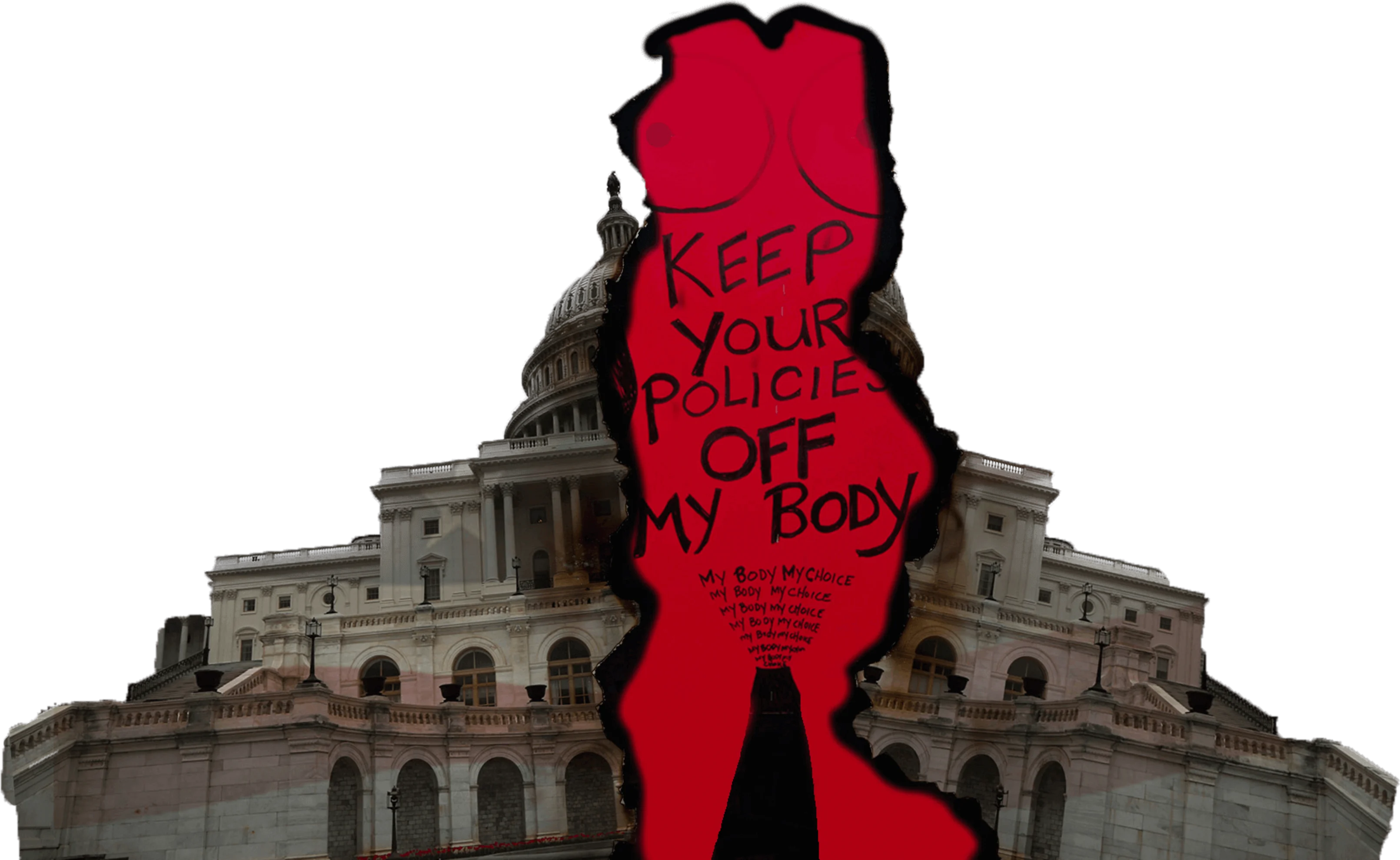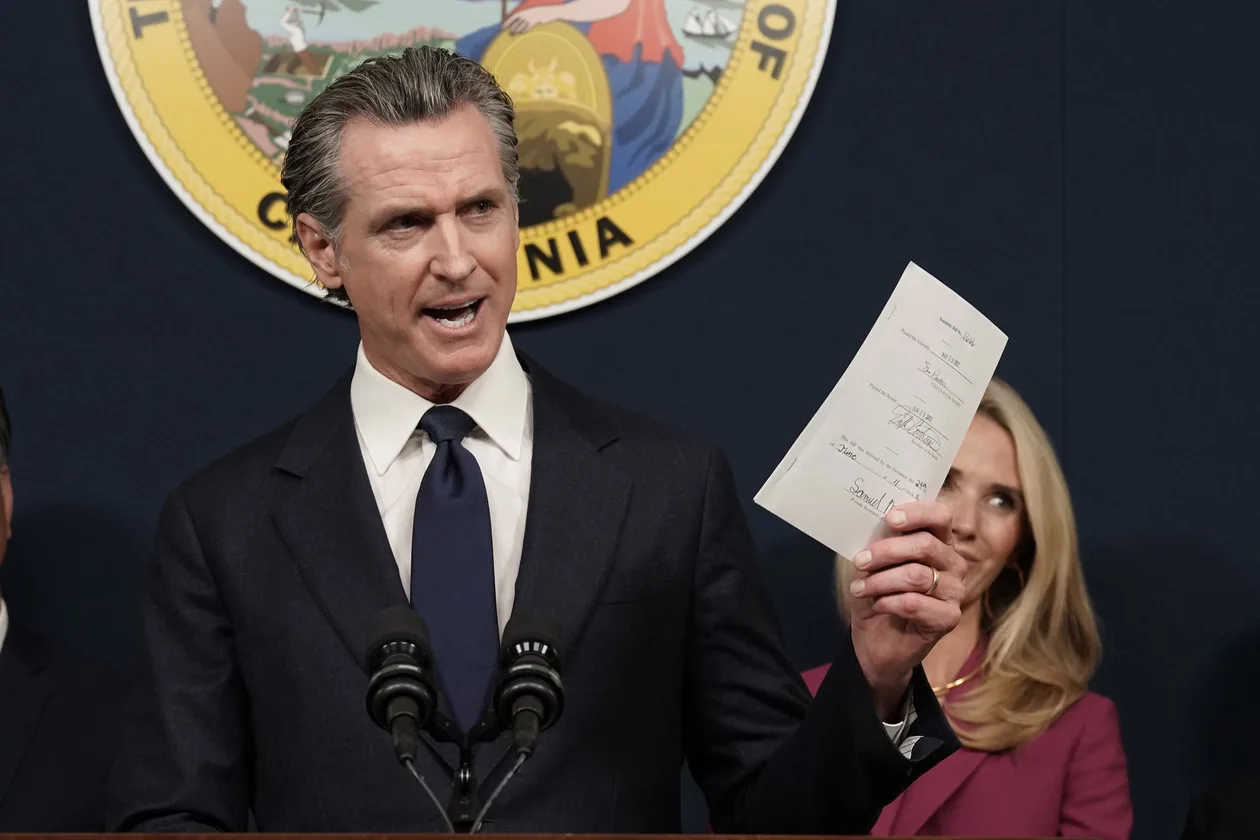The U.S. is slipping towards authoritarianism, starting with your reproductive rights
26 September 2022

26 September 2022

George Washington, respected and admired as a demi-god by most American patriots today, walked to the temporary capital of New York, to take the oath of office, overcome with fear [1].
Washington, and indeed, many of the founding fathers knew how difficult it was for republics to survive. Being well-versed in their history, particularly that of the Roman Republic, they all knew of the momentous task ahead of them. Events such as the Civil War, the Civil Rights Movement and the recent storming of the Capitol would have rocked the US' first president to his core, and today's political climate would have him turning in his grave.
We begin at the reversal of Roe v Wade in June 2022, when the Supreme Court decided that abortion was no longer a constitutional right. Since the monumental ruling in 1973, abortion laws and reproductive rights have been a recurring theme in democratic debates, and I myself ask; Why are womens' bodies regulated more than gun ownership?
There are many answers to that question, and to find them, we must go first to Mississippi, and then to California. There we will see how abortion laws threaten what the founding fathers created all those years ago.
It was Mississippi, under the Republican governorship of Tate Reeves, that brought abortion and reproductive rights back to the foreground of American politics, as they introduced a ban on the practice after 15 weeks of pregnancy in 2018. Over in the West, the Governor of California, Gavin Newsom, signed a law that protects people who carry out an abortion in California from being sued in states where it is banned.

The state is also flirting with tax credits for companies considering taking their business out of states that impede the rights and freedoms of the LGBTQ community, saying it wants to become a 'sanctuary' for trans-identifying children. The Governor says that all the 'progress' is being 'unravelled', and he encourages those in California to defend people's freedom.
These aforementioned states paint a picture, and not a pretty one, of what is happening all across America. In Virginia, trans-identifying students must now bring 'evidence' or 'documentation' so that they may use the bathroom that best fits with their gender of choice. In South Carolina, three women said they could not possibly support an abortion ban unless it was accompanied by provisions or exceptions for pregnancies caused by rape or incest.
Republicans can't make their mind up - no surprise there! There are some who view abortion as the outright ending of a life, and others who defend the rights of rape victims to have that choice available, or for mothers who don't want to go to term with a baby that won't live outside the womb. Again, I question why a woman's right to choose is a matter of policy or legislation, especially in a nation that was founded on a sense of individualism and liberty.
Apparently I'm not the only one baffled, even flabbergasted, or at odds by this issue. The Economist reports that differences in policy preferences have widened over recent decades, as 12 republican states currently have an outright ban on abortion, and 2 have it banned after six weeks. It is also said that once all states have made their decision, over half will have inhibited access to, or banned abortions. The US is split once again, the union is teetering once again.
The US is struggling to come up with a definition of 'freedom' - and who it belongs to
The United States, in its infancy, was heavily influenced by Enlightenment thinking, and it was Montesquieu's ideas of government that perhaps influenced them the most; “a government should be set up so that no man need be afraid of another”. But today, women and girls are afraid of legislation that denies them the right to choose, and trans-identifying students face very few 'sanctuaries', outside California, where they can live as they choose. In fact, it is not their fellow citizens they are afraid of, but their judiciary and their state legislatures. The US is struggling to come up with a definition of 'freedom' - and who it belongs to.
What is freedom? Who is freedom for? How far does freedom go? The answers to these questions, we thought, were found when independence from the tyranny of the British crown was achieved. But we still face those questions today, over different issues, in different times and with different people. The questions of reproductive and trans rights, and their place in US democracy, have widened the political rifts between citizens and politicians alike.
Time and again religion has played a huge role in American politics, and our current problems are no different. Who is to decide to terminate a pregnancy? God or the pregnant woman? Who grants an unborn child its life? God, or its mother? Whose rights and freedoms should we prioritise? The mother, or the child? Question marks dot the landscape, with a few exclamation marks here and there, and despite its short history, the US is divided more than ever before.
[1] Davidson JW. In: A little history of the United States. New Haven, CT: Yale University Press; 2016. p. 100.
Written by
Archie RankinA young, pen-wielding Liberal with intellectual curiosities in all things politics, with huge appetites for history, philosophy and economics. Committed to making a positive difference for young people in my role as Associate Editor & Innovation Lead, constantly seeking out new ideas and approaches to drive innovation and progress.
Weekly emails
Get more from Archie
The Fledger was born out of a deep-seated belief in the power of young voices. Get relevant views on topics you care about direct to your inbox each week.
Write at The Fledger
Disagree with Archie?
Have an article in mind? The Fledger is open to voices from all backgrounds. Get in touch and give your words flight.
Write the Contrast